MAP Website en Español haga clic aqui FEATURED STORY Turtles, coral and mangroves top climate risk list

CAYMAN ISLANDS – Scientists visiting the Cayman Islands from the UK who are helping the Ministry of Sustainability and Climate Resiliency undertake a comprehensive assessment of the risks the country faces from climate change have already identified over fifty areas under threat. At a public meeting on what they had learned so far from their work on the risks to species and habitats, they revealed the top five concerns: turtles (at the top of the list), corals, the loss of the islands’ endemic species and mangroves. Based on the data they have already collected, Dr John Pinnegar, the lead advisor on climate change at Cefas, outlined some serious areas of concern relating to climate change. He noted that over the last 40 years the average temperature in the Cayman Islands has increased by 2.2ºC. Focusing on two well-known dangers that all low-lying islands face, Pinnegar said that by 2050, sea levels around the Cayman Islands will rise by at least 30cm, and the sea will warm, which will cause local ocean acidification to increase by at least a 20%. The changing climate is going to have complex impacts and knock-on effects that will need to be considered. Sea level rise will increase beach erosion, which won’t just affect luxury beachfront homes and flood out sewage systems, but will cause the loss of turtle nesting areas. The turtles will also be impacted by warming, acidifying seas as well as the increase in beach temperature, which affects the gender of hatchlings. READ MORE GLOBAL World Forestry Congress to push for greener, healthier future with forests

GLOBAL – Making sure forests play a crucial role in combating climate change and achieving sustainable development goals will be the focus of the XV World Forestry Congress next week in Seoul, Republic of Korea. More than 12,000 forest experts have registered to attend the world’s largest forestry event, which is co-organized by the Republic of Korea and FAO and takes place in a hybrid format from 2 to 6 May 2022 under the theme of Building a green, healthy and resilient future with forests. “The Congress comes at a critical time in the global effort to combat the climate crisis,” said World Forestry Congress Secretary-General Eunsik Park (Korea Forest Service). “We have a crucial opportunity to advance international cooperation on forests and accelerate commitments to reduce deforestation and meet global development goals.” READ MORE AFRICA Poor planning, persistent farming undermine mangrove restoration in Tanzania
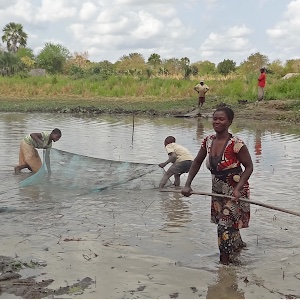
TANZANIA – Tanzania’s Rufiji Delta is arguably the mangrove capital of East Africa, home to around 55,000 hectares (135,900 acres) of mangrove forest. In the face of the climate crisis, mangroves like this play an important role sequestering large amounts of carbon dioxide from the atmosphere. For most of the roughly 49,000 people living in remote communities in the Rufiji Delta, these coastal wetlands mean livelihood. They depend on them for rice farming and fishing, as well as for firewood and timber. However an estimated 30-50% of the world’s mangroves have been lost in the past 50 years, contributing massively to global carbon emissions. Since the 1990s, the Tanzanian government has been working to replant the Rufiji Delta’s mangroves. But efforts to restore degraded mangroves in the northern delta block are being undermined by unsustainable rice farming, new research has shown. READ MORE AMERICAS Miami wants to ban planting mangroves at city parks
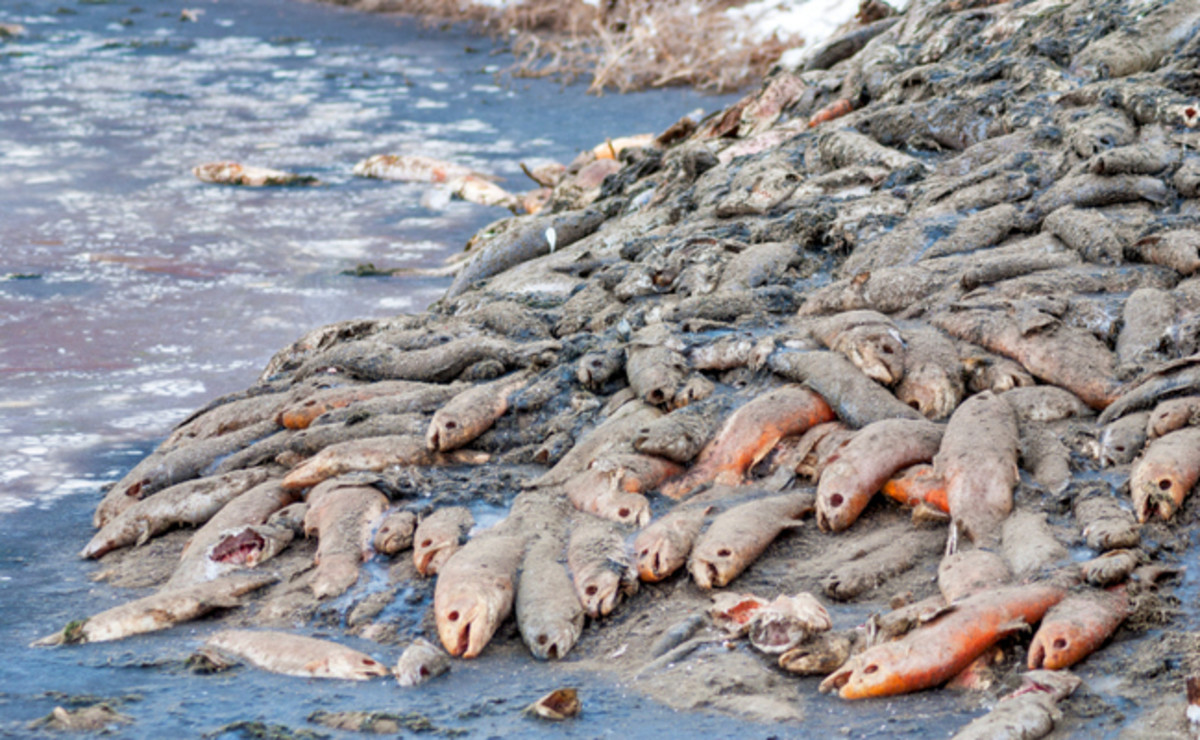
USA – As sea rise and worsening storm surges from hurricanes increasingly threaten the shores around Biscayne Bay’s busy north end, a Miami city commissioner has made a puzzling proposal: no new mangroves at city parks. The ordinance sponsored by City Commissioner Joe Carollo would prohibit planting any new mangroves or “tall-growing plants” to protect waterfront views. When the ordinance came up for first reading at the commission’s May 12 meeting, Carollo said he’d postponed it to give the city manager more time to look at it. Carollo, whose district runs along the Miami River from Southwest 2nd Avenue to the Dolphin Expressway, did not respond to requests for interviews. Since the 1970s, the bay near Miami has been designated as an aquatic preserve in an effort to restore the habitat, including mangroves, that help shelter manatees, sea turtles, crocs and about 180 other rare and threatened species. Despite protections, conditions in the bay have spiraled downward. Seagrass meadows have wilted and vanished and persistent algae blooms have spread. In 2019, the National Oceanic and Atmospheric Administration warned the bay was undergoing a regime shift and in danger of losing its famously once gin-clear waters. In 2020, the largest fish kill in recent memory littered the north end with floating carcasses. READ MORE Hungry Bay residents bid to save ‘key’ mangrove forest
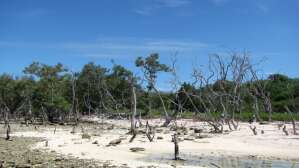
BURMUDA – Hungry Bay area residents have put forward a planning application intended to help protect the island’s largest remaining patch of mangroves. According to a recent planning application the Hungry Bay Restoration Committee and property owner James Tucker hope to create a 4ft high seawall to block a gap in the shoreline formed by Hurricane Fabian. Bermuda Environmental Consulting Ltd, agents for the application, said historical maps had shown the “retreat” of the mangroves at the South Shore, Paget bay.That process had been accelerated in recent years after a gap formed in the rocks that once protected the bay. The firm said: “In 2003, Hurricane Fabian broke through the natural rock barrier that shelters the bay, creating a breach that has been enlarged by subsequent hurricanes and the net result is more wave energy impacting the mangroves and further destruction.“Thus, unless and until the breach is repaired, it will continue to expand, allowing for more mangrove loss.” READ MORE ASIA Cameroonian activist wins Wangari Maathai Forest Champions’ Award 2022

KOREA – Activist Cécile Ndjebet, of Cameroon, won the 2022 Wangari Maathai Forest Champions Award in recognition of her outstanding contribution to preserving forests and improving the lives of people who depend on them. Presented by the Collaborative Partnership on Forests (CPF), which is chaired by the Food and Agriculture Organization of the United Nations (FAO), the award was conferred at a ceremony during the XV World Forestry Congress in Seoul, Republic of Korea. “This award celebrates Cécile Ndjebet’s energy and dedication over three decades in promoting women’s rights to land and forests. She has actively shown that women’s participation in forest governance and preservation is fundamental to achieving sustainable forest management,” said FAO Deputy Director-General and CPF Chair Maria Helena Semedo. READ MORE A Carbon Catastrophe in the Making: The dirty energy plans in Chattogram
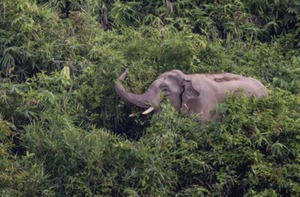
BANGLADESH – Known throughout Bangladesh for its beautiful beaches and mountainous terrains with deep tropical forests, the Chattogram division of Bangladesh is now at risk of being the location of one of the world’s biggest carbon catastrophes. Plans by companies predominantly from Japan and the United States to massively expand fossil fuels in Bangladesh overwhelmingly focus on the Chattogram division, the location of two-thirds of the proposed new fossil fuel capacity in Bangladesh. 20 gigawatts (GW) of new coal and gas power capacity is proposed in the Chattogram division this decade, enough to double the current power capacity of Bangladesh. This massive buildout spells disaster for the local ecology and waterways, communities and livelihoods, health and the climate. Let’s keep fossil fuels out of Bangladesh for the health and wellbeing of the local communities, the beautiful regional beaches and forests, the Bangladeshi economy, and our shared climate. READ REPORT SIGN PETITION UAE joins Sadhguru’s global ‘Save Soil’ movement
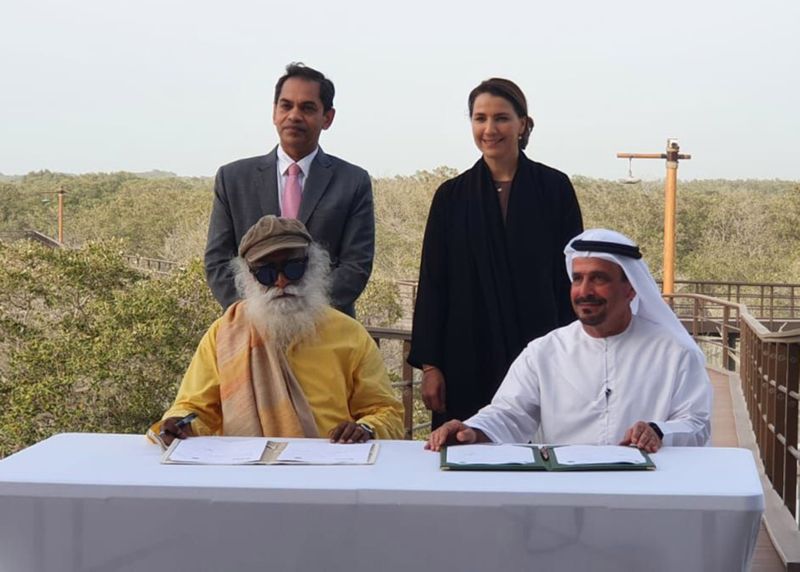
UAE – The UAE has become the 74th country to join the ‘Conscious Planet Movement to Save Soil’, a global initiative founded by Indian yoga guru and environmental visionary Sadhguru Jagadish Vaudev, who visited Abu Dhabi. Mariam Al Mheiri, Minister for Climate Change and Environment, presided over an agreement signed in the capital between Conscious Planet and the Dubai-based International Centre for Biosaline Agriculture (ICBA), a non-profit research centre that focuses on improving agricultural knowledge. Sadhguru and other UAE officials then planted mangrove saplings at the Jubail Mangrove Park in Abu Dhabi, and the guru was briefed about the important role mangroves play in carbon sequestration and soil conservation. “Soil gives us life, and is the largest terrestrial carbon sink. It also serves as a habitat for thousands of organisms, with one teaspoon of soil said to contain more microbes than the entire human population. Unfortunately, 33 per cent of the world’s topsoil is already degraded,” Al Mheiri told attending officials. READ MORE OCEANA Supermarket commits millions of dollars to protect Great Barrier Reef coastal ecosystem
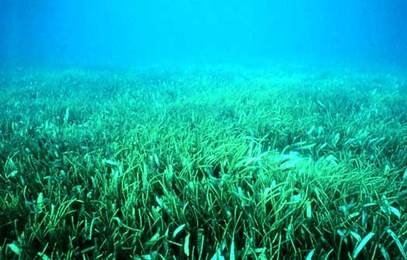
AUSTRALIA – One of Australia’s largest supermarket chains, Coles, has announced a 10 million Australian dollars (about 7.1 million U.S. dollars) investment to help strengthen the regeneration and resilience of the decaying Great Barrier Reef. The plan would see the establishment of a ten-year “Blue Carbon Partnership”, which recognizes and seeks to address the threat climate change has on the UNESCO world heritage site. “Unlocking Australia’s blue carbon potential by investing in projects that support revegetation and regeneration of coastal ecosystems is crucial to preserving the Reef,” said Coles CEO Steven Cain. The scheme would begin with the funding of two projects, one would work with farmers to restore coastal wetlands in the Great Barrier Reef catchment, while the other would develop seagrass nurseries around the reefs to support fish and shellfish and capture additional carbon. READ MORE Like this newsletter?
Pease consider donating to MAP to keep it going.
Giving could never be easier  *Articles in this newsletter may mention practices being used and/or show exagerated results being claimed without proof. Stories are presented here in effort to show mangrove related activity around the world and do not necessarily reflect Mangrove Action Project’s views or mangrove restoration best-practices. | ACTION ALERTS
Keep fossil fuels out of Bangladesh for the health and wellbeing of the local communities, the beautiful regional beaches and forests, the Bangladeshi economy, and our shared climate. SIGN PETITION Stop this total madness Stop the biggest heated oil pipeline in the world — right through the heart of Africa!
CLICK HERE Strengthen 60 Women Farmers in El Salvador
DONATE HERE
Like this newsletter? Pease consider donating to MAP to keep it going. Giving could never be easier 
MAP Website en Español
haga clic aqui ARTWORK SUBMISSIONS NOW OPEN FOR NEXT YEAR’S CALENDAR

13 Year old Linda Li “Mangrove Adventure” from Kid Dream Art School

WATCH NOW 
Restoring The Natural Mangrove Forest
Watch movie
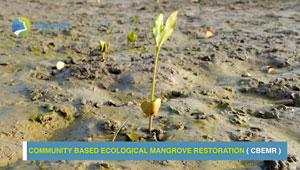
Community Based Ecological Mangrove Restoration in Rufiji Delta VIEW VIDEO
Video: Mangroves for the Future
View Here WANT TO GET INVOLVED?
Follow and Join MAP!    
Like this newsletter? Pease consider donating to MAP to keep it going. Giving could never be easier 

Interested in connecting or working with MAP? Check out our opportunities here 
MANGROVE ISSUES Want to learn more about mangroves?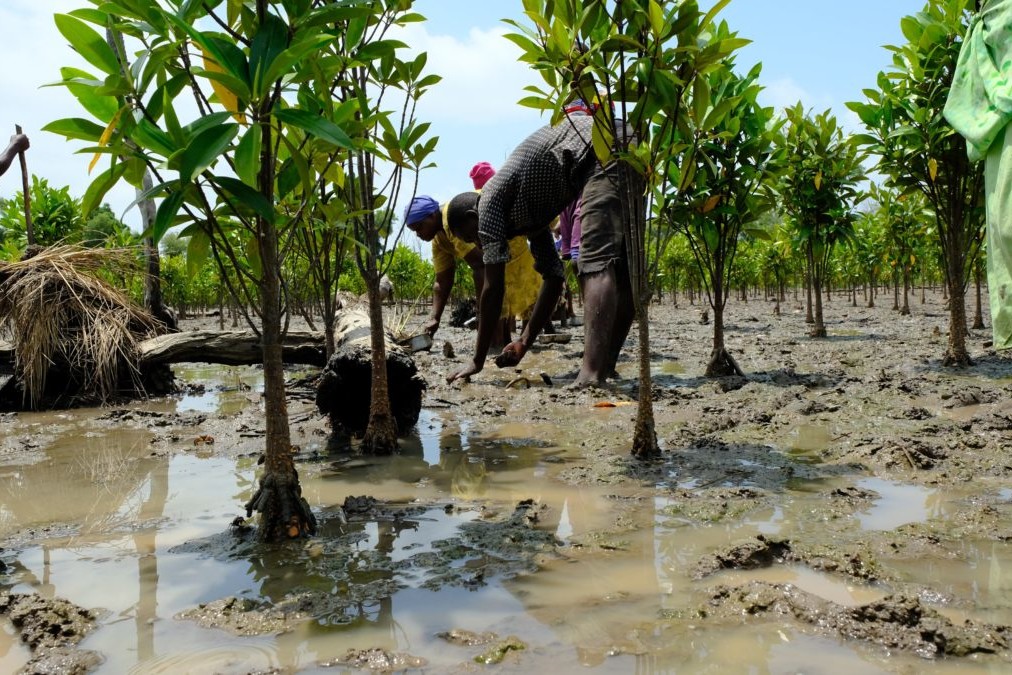
Our short presentation will give you a better understanding of the issues we are working to solve. WATCH PRESENTATION What is CBEMR? Download MAP’s 2 page CBEMR Information Sheet containing links to all MAP’s CBEMR resources – CLICK HERE View MAP’s uploaded Videos at
MAP Video Gallery Question Your Shrimp Consumer/Markets Campaign!
WATCH VIDEO Mangroves: Guidebook to Malaysia – Click Here SHARE MAP’S VISION
CLICK HERE to watch short introductory video. Together we can work “at the roots of the sea”. Our short documentary, Reducing the Risk of Disaster through Nature-Based Solutions : Mangroves 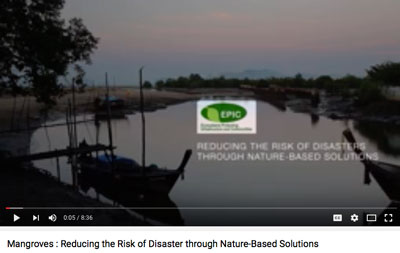
NASA Study Maps the Roots of Global Mangrove Loss

Marvellous Mangroves Curriculum The Marvellous Mangroves Curriculum begins with a simple philosophy – getting future generations to not only learn about, but understand the importance of mangrove forests. VISIT 
The award-winning Marvellous Mangroves (MM) curriculum educates children on the importance of mangroves and their ecological functions, teaching them about modern challenges and mechanisms for sustainability. VIEW VIDEO Marvellous Mangroves Curriculum in Bangladesh – WATCH VIDEO
MARVELLOUS MANGROVES IN BRAZIL
En Portuges 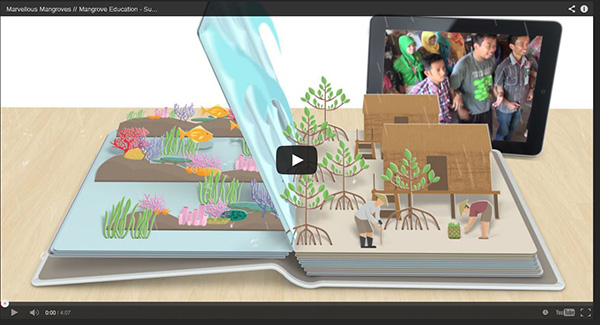
Marvellous Mangroves – A Curriculum-Based Teachers Guide.
Like this newsletter? Pease consider donating to MAP to keep it going. Giving could never be easier 
“Question Your Shrimp” Campaign Question Your Shrimp – is it really sustainable? Sign the Petition
Note to Our Readers: We strive to keep active links in our newsletter. However, due to circumstances beyond our control, occasionally links to stories may become broken. If you find a link to a story is not functioning, please cut and paste the headline into your browser search bar. In most cases you should be able to locate the original story.
Not yet a MAP News subscriber?
Click here to subscribe.  *Articles in this newsletter may mention practices being used and/or show exagerated results being claimed without proof. Stories are presented here in effort to show mangrove related activity around the world and do not necessarily reflect Mangrove Action Project’s views or mangrove restoration best-practices. *Articles in this newsletter may mention practices being used and/or show exagerated results being claimed without proof. Stories are presented here in effort to show mangrove related activity around the world and do not necessarily reflect Mangrove Action Project’s views or mangrove restoration best-practices.
|
























